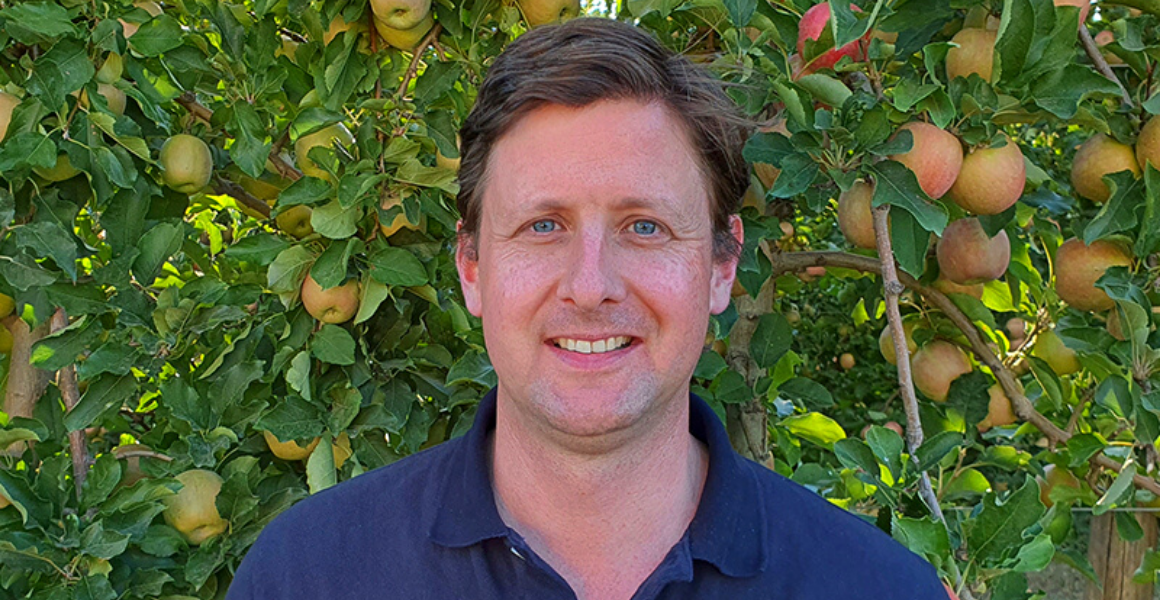
Plant export Industry Advice Notice: Renewal of Australia’s Country Recognition Arrangement with Indonesia
4 May 2021
A hive of activity in Victoria’s Gippsland region
14 May 2021Do you know which Hort Innovation Regional Extension Manager is working to enhance the coordination, communication and application of R&D outcomes in your region?
To support growth in the horticulture sector, Hort Innovation launched an extension initiative that involves staff based in the regions, who will play a linking role within industry.
A series of written and video profiles of the team have been developed so that you can get to know your Regional Extension Manager, and hear about their background in extension and what skills they bring to the role.
Click here to learn about Regional Extension Manager for Southern Australia, Jason Hingston, in this article and video:
Jason, can you tell us about your career so far. How did you end up working in extension?
I have had a unique career in horticulture so far, having had the opportunity to work across many different areas. After finishing my agricultural science degree at the University of Tasmania I started working at a private research firm, Agronico Research. I was responsible for the management and day-to-day running of research programs for multinational ag-chemical companies as well as industry groups that were funded by Horticulture Australia Limited (now Hort Innovation). This was a great opportunity as it allowed me to obtain a great technical understanding of a wide range of temperate cropping systems. It was also my first exposure to extension and the role it plays in research and development.
After spending several years focused on a wide range of crops, I decided to look for the opportunity to develop further and specialise in one cropping system. To this end, I took on the position of Industry Development Officer for the Victorian strawberry industry. There I was focused on developing and leading extension programs, scoping industry R&D needs, and leading local and international study tours. This role allowed me to enhance my extension skills and gain an excellent technical understanding of berry production in temperate Australia.
When I moved on from the Victorian strawberry industry, I wanted to challenge myself, so I accepted the role of Territory Manager with Organic Crop Protectants across South-East Australia. Here, I increased my technical agronomy skills, particularly in the areas of pest control and nutrition. I also gained a strong commercial knowledge of pricing and supply factors and how this impacts farm profitability, along with the consistent need to demonstrate value for money and return on investment.
How would you describe extension?
I would describe extension as the transfer of information and/or skills that help individuals, groups, businesses, or whoever is involved, to make a positive change.
Do you have any achievements from your career that you’re particularly proud of?
I’m very grateful and proud of having had the opportunity to work with some amazing growers who are at the cutting edge of new production systems and innovations. It is also a great privilege to be able to work alongside industry to shape the future of where Australian horticulture is heading.
How does your current role differ from traditional roles in extension, such as industry development officers? What drew you to this role at Hort Innovation?
Traditional extension-based roles in horticulture have been focused on individual crops or crop type groupings (like apples and pears) and are focused towards on-ground activities. Our roles are aimed at providing a regional focus across all activities within key regions and working across different commodities to increase the reach of R&D outcomes. We’re also looking to identify areas for collaboration that will reduce duplication and increase levy payer value for money.
Through my experience in the horticulture industry, in both research and extension, I have seen firsthand the level of duplication that occurs and areas for improvement with extended R&D outcomes. It was the opportunity to be involved in improving this extension methodology that drew my interest to the role with Hort Innovation.
What region will you be working in? How will your work bring benefits to this region?
I will be working in the Southern Australia region, which covers southern Victoria and Tasmania. Initially, I will be working to facilitate new, and strengthen existing, linkages between levy payers and researchers. This will benefit the region by increasing the extension of R&D outputs into the area and allow greater capacity to tackle regional issues that impact various crop types.
What key projects are your team working on at the moment?
As a team we are currently working on a few key pieces of work that will guide Hort Innovation into the future. These include finalising a review of our current and previous industry development projects, developing regional-based extension strategies, and working on renewal of Strategic Investment Plans (SIPs) across all commodities. These activities will guide how we manage extension-based projects into the future, how we invest industry levies, and how we work and interact within the regions to ensure we get the best outcomes and return on investment.
What are you most looking forward to in your role in 2021?
I’m most looking forward to getting out into the region, to hear from and work with growers and delivery partners, so we can really start to make the most of the large amount of R&D that is done on behalf of industries
What do you do for fun outside of work?
If I’m not trying to finish my renovations, you will generally find me out exploring some of the wonderful walks throughout Victoria and Tasmania, or on the end of fishing rod.
How can growers and industry get in touch with you?
Easy, give me a call on 0429 793 496 always happy to chat, or shoot me an email at jason.hingston@horticulture.com.au.
*Produced by the Hort Innovation team

